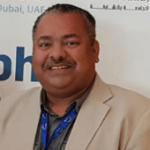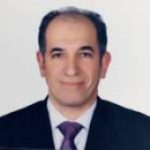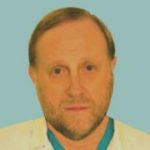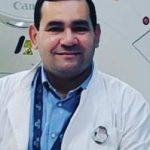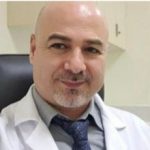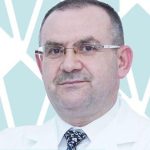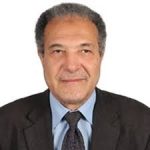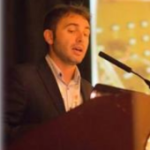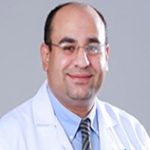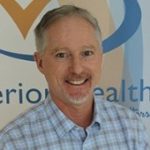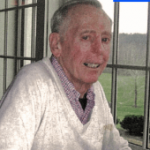
2nd Edition of International Arabian Summit
ON
Pulmonary and Critical Care
Event Date
February 26-27, 2026
Venue
Dubai, United Arab Emirates
– Previous Conference Performers / Professionals From Around The Globe –
Media Partners/Collaborator
A huge thanks to all our amazing partners. We couldn’t have a conference without you!



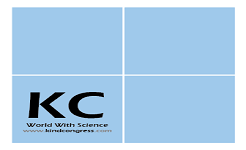
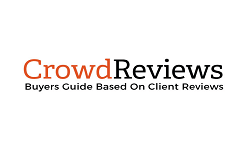


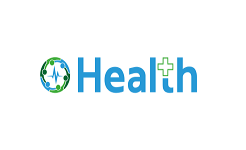


Sponsors/Exhibitors
A huge thanks to all our amazing partners. We couldn’t have a conference without you!


About the Conference
The 2nd Edition of International Arabian Summit on Pulmonary and Critical Care, scheduled for February 26-27, 2026, in Dubai, United Arab Emirates, stands as a premier global gathering of healthcare professionals, researchers, academicians, and industry leaders committed to advancing the fields of pulmonary medicine and critical care. This high-impact summit aims to address the latest developments, innovations, and challenges facing respiratory and intensive care medicine in both clinical and research settings.
With respiratory diseases such as COPD, asthma, pulmonary hypertension, interstitial lung diseases, sleep disorders, and lung cancer on the rise globally, and critical illnesses like sepsis, ARDS, and organ failure becoming more complex and prevalent, the conference seeks to foster evidence-based practices, multidisciplinary collaboration, and the integration of new technologies into patient care. Held in the vibrant and strategically located city of Dubai—a hub for medical innovation and international collaboration—the summit will host expert-led sessions that span a wide range of topics including mechanical ventilation strategies, interventional pulmonology, cystic fibrosis management, pediatric respiratory challenges, and global perspectives on respiratory health. Emphasis will also be placed on the evolving role of artificial intelligence, telemedicine, and machine learning in transforming diagnostics, treatment planning, and monitoring in both outpatient and ICU settings.
The conference will feature keynote addresses from globally recognized pulmonologists and intensivists, interactive panel discussions, case study analyses, and hands-on workshops that provide attendees with both theoretical and practical knowledge. The critical care segment will delve into the latest updates in ICU protocols, sedation and analgesia strategies, ethical dilemmas in end-of-life care, and advanced pharmacological approaches in managing acutely ill patients. A unique aspect of the summit is its commitment to holistic and patient-centered care, incorporating discussions on nutrition, rehabilitation, mental health, and family involvement in the treatment process. Young researchers and students will have the opportunity to present their work through poster sessions and oral presentations, encouraging academic growth and innovation. Moreover, an expansive exhibition area will showcase the latest in medical equipment, diagnostic tools, digital health platforms, and pharmaceutical advancements, allowing healthcare providers to explore solutions that can be translated into real-world clinical improvements.
Public health experts and policy influencers will also participate, emphasizing the need for accessible and equitable respiratory care, especially in underserved populations. The summit will cover a wide range of subtopics, such as sleep apnea management, lung cancer screening programs, pulmonary infection control, and the role of immunotherapy and biologics in managing chronic respiratory diseases. As healthcare systems globally strive to achieve resilience post-pandemic, discussions on preparedness, infection control, and capacity building in critical care settings will be especially relevant. Networking opportunities will abound, allowing attendees to connect with global peers, share experiences, build collaborative research relationships, and explore funding and publication opportunities. Dubai’s world-class infrastructure and cultural richness offer a compelling backdrop to the academic excellence and professional exchange expected at this summit. In essence, the International Arabian Summit on Pulmonary and Critical Care 2025 is more than just a conference—it is a convergence of knowledge, innovation, and global expertise that will shape the future of respiratory and intensive care medicine.
Scientific Sessions
The conference boasts an extensive scientific program designed to address the most pressing issues and emerging trends in pulmonary and critical care. Topics include:
- Advances in Respiratory Therapy
- Management of Chronic Obstructive Pulmonary Disease (COPD)
- Innovations in Mechanical Ventilation
- Pulmonary Hypertension: New Treatments and Approaches
- Lung Cancer Diagnosis and Management
- Asthma: From Pathophysiology to Patient Care
- Pediatric Pulmonology: Challenges and Solutions
- Sleep Apnea: Diagnostic and Therapeutic Strategies
- Critical Care Pharmacology
- Pulmonary Infections: Prevention and Treatment
- Emerging Therapies for Cystic Fibrosis
- The Role of Artificial Intelligence in Pulmonary Care
- Interventional Pulmonology: Techniques and Outcomes
- Sepsis and Septic Shock Management
- Acute Respiratory Distress Syndrome (ARDS)
- Global Perspectives on Respiratory Health
- Smoking Cessation Programs and Policies
- Role of Nutrition in Respiratory and Critical Care
- Multidisciplinary Approaches to Critical Care
- Ethical Considerations in Pulmonary Medicine
Conference Highlights
- Keynote Presentations: Renowned experts will deliver inspiring talks on groundbreaking research and clinical practices.
- Scientific Tracks: Diverse sessions catering to various subspecialties in pulmonary and critical care.
- Workshops: Hands-on learning experiences to enhance practical skills and knowledge.
- Poster Presentations: Showcase of innovative research from emerging scientists and young investigators.
- Exhibitions: Displays of state-of-the-art medical technologies and tools by leading companies.
- Networking Opportunities: Connect with professionals and researchers from across the globe to foster collaborations.
- Panel Discussions: Engage in debates and discussions on controversial and emerging topics.
Benefits of Attending the Conference
Attending the 17th International Conference on Pulmonary and Critical Care offers numerous benefits, including:
- Knowledge Enhancement: Stay updated on the latest research, treatments, and technological advancements in pulmonary and critical care.
- Skill Development: Participate in workshops and practical sessions to refine your expertise.
- Professional Networking: Build valuable connections with peers, mentors, and industry leaders.
- Collaboration Opportunities: Discover potential research collaborations and partnerships.
- Recognition: Gain recognition for your research through oral or poster presentations.
- CME Credits: Earn continuing medical education (CME) credits to meet your professional requirements.
- Global Perspective: Learn about international approaches and solutions to respiratory and critical care challenges.
Exhibition Details
The exhibition at the International Arabian Summit on Pulmonary and Critical Care provides a platform for organizations to showcase their products, technologies, and services to a global audience of healthcare professionals, researchers, and industry leaders. With a dedicated exhibition area located at the heart of the conference venue, exhibitors will have unparalleled visibility and access to attendees.
Benefits to Exhibitors
- Increased Brand Visibility: Gain exposure to a highly targeted audience of professionals and decision-makers in pulmonary and critical care.
- Networking Opportunities: Interact with potential clients, collaborators, and industry experts.
- Product Demonstrations: Showcase your innovations and receive immediate feedback from end-users and experts.
- Market Insights: Understand the latest trends and needs in the pulmonary and critical care field.
- Lead Generation: Build a strong database of qualified leads for future collaborations and sales.
- Sponsorship Opportunities: Enhance your brand’s presence by participating in sponsorship packages tailored to meet your marketing goals.
- Global Reach: Engage with attendees from around the world, broadening your market potential.
- Direct Engagement: Create lasting impressions through face-to-face interactions with attendees.
- Complimentary Premium Hotel Accommodation: Enjoy premium hotel accommodation facilities included for exhibitors, ensuring a comfortable and convenient stay throughout the event.
Venue Details
Paris, France
The conference will be held in the captivating city of Paris, renowned for its cultural heritage, architectural marvels, and vibrant atmosphere. The venue is centrally located, offering convenient access to public transportation, hotels, and key attractions.
Attractions in Paris
Paris, often called the “City of Light,” is a global hub for art, fashion, gastronomy, and culture. Conference attendees can explore the city’s iconic landmarks, including:
- Eiffel Tower: The symbol of Paris and a must-visit landmark.
- Louvre Museum: Home to the Mona Lisa and countless masterpieces.
- Notre-Dame Cathedral: A Gothic architectural marvel.
- Sacré-Cœur Basilica: Offering breathtaking views of the city.
- Champs-Élysées and Arc de Triomphe: A famous avenue perfect for strolling.
- Seine River Cruises: A relaxing way to experience the city’s beauty.
- Montmartre: A bohemian neighborhood known for its artistic history.
- Palace of Versailles: A stunning example of royal opulence.
- Parisian Cafés: Experience the charm of Paris by enjoying coffee and pastries at a local café.
Sessions and Tracks
1. Advances in Respiratory Therapy
This session highlights recent innovations in respiratory care, including breakthroughs in aerosol drug delivery, portable oxygen systems, advanced nebulizers, and smart inhalers. It will also explore integrated respiratory rehabilitation programs that combine exercise, nutrition, and psychosocial support, with the goal of improving patient functionality and reducing rehospitalization in chronic lung disease patients.
2. Management of Chronic Obstructive Pulmonary Disease (COPD)
This topic covers an in-depth look at COPD staging, phenotyping, and personalized treatment strategies. Experts will present the latest GOLD guidelines, updates on long-acting bronchodilators, triple inhaler therapy, pulmonary rehab approaches, and smoking cessation integration. Innovations such as remote monitoring for early exacerbation detection will also be discussed.
3. Innovations in Mechanical Ventilation
This track will focus on state-of-the-art ventilation modes such as high-frequency oscillatory ventilation (HFOV), airway pressure release ventilation (APRV), and neurally adjusted ventilatory assist (NAVA). Presentations will also address automated weaning protocols, sedation reduction strategies, and ventilator-induced lung injury (VILI) prevention techniques.
4. Pulmonary Hypertension: New Treatments and Approaches
With pulmonary hypertension being a complex and progressive condition, this session will explore recent advances in targeted pharmacotherapy, risk stratification, and non-invasive diagnostics. Emphasis will be placed on managing WHO Group I (pulmonary arterial hypertension) through combination therapies, and multidisciplinary approaches to Groups II-V.
5. Lung Cancer Diagnosis and Management
Covering the full spectrum from screening to survivorship, this track focuses on early detection with low-dose CT, liquid biopsies, and genomic profiling. Speakers will present updates on immunotherapy, targeted therapy, radiation innovations like SBRT, and holistic approaches to palliative care and patient counseling.
6. Asthma: From Pathophysiology to Patient Care
This session covers the molecular and immunological basis of asthma, including eosinophilic inflammation and airway remodeling. The focus will be on advanced treatment options such as biologics (e.g., omalizumab, mepolizumab), precision medicine, and best practices for managing severe asthma in both children and adults.
7. Pediatric Pulmonology: Challenges and Solutions
Explore respiratory illnesses unique to pediatric populations, such as congenital airway anomalies, RSV-related bronchiolitis, and pediatric interstitial lung disease. This topic also examines developmental factors affecting lung growth, and challenges in managing chronic pediatric conditions like asthma and cystic fibrosis.
8. Sleep Apnea: Diagnostic and Therapeutic Strategies
This topic reviews the latest diagnostic tools like home sleep apnea testing (HSAT), polysomnography, and AI-assisted scoring. Treatment innovations such as auto-titrating CPAP devices, hypoglossal nerve stimulation, and surgical options will be presented, with an emphasis on individualized treatment pathways.
9. Critical Care Pharmacology
Attendees will gain insight into evidence-based pharmacological interventions in intensive care, including optimal antibiotic use, sedation protocols, vasopressor titration, and corticosteroid use in ARDS and sepsis. Drug-drug interactions, renal dosing adjustments, and medication safety will also be covered.
10. Pulmonary Infections: Prevention and Treatment
Explore comprehensive strategies for tackling viral, bacterial, fungal, and mycobacterial infections of the lung. The session includes updates on vaccination programs, management of multidrug-resistant TB, pneumonia protocols, fungal diagnostics, and the role of antifungal prophylaxis in immunocompromised patients.
11. Emerging Therapies for Cystic Fibrosis
This session focuses on breakthrough CFTR modulators, gene-editing technologies like CRISPR, and innovations in mucociliary clearance techniques. Topics include personalized drug regimens, nutritional management, infection control, and improving life expectancy through integrated care models.
12. The Role of Artificial Intelligence in Pulmonary Care
Discover how AI and machine learning are transforming the landscape of pulmonary medicine. Topics include automated imaging analysis, predictive algorithms for exacerbations, AI-driven ventilator settings, and the integration of wearable devices and digital health platforms into chronic disease monitoring.
13. Interventional Pulmonology: Techniques and Outcomes
Learn about minimally invasive procedures such as endobronchial valve placement, robotic-assisted bronchoscopy, cryotherapy, and tumor debulking. The focus will be on procedural efficacy, complications, and advancements in technology that reduce patient recovery time.
14. Sepsis and Septic Shock Management
This session addresses early goal-directed therapy, fluid resuscitation strategies, timing of antibiotics, and the latest evidence for corticosteroid and vasopressor use. Protocols for managing respiratory complications and preventing multi-organ failure in septic patients will be discussed.
15. Acute Respiratory Distress Syndrome (ARDS)
Review current standards and controversies in ARDS treatment, including lung-protective ventilation, the role of ECMO, corticosteroids, prone positioning, and fluid management. Discussions will also include post-ARDS rehabilitation and long-term follow-up care.
16. Global Perspectives on Respiratory Health
A look at how respiratory diseases impact different regions globally, with a focus on air pollution, tuberculosis, occupational lung diseases, and disparities in healthcare access. Case studies and international collaborations will be highlighted to improve outcomes in low-resource settings.
17. Smoking Cessation Programs and Policies
This session will explore best practices for implementing and evaluating smoking cessation initiatives. It includes pharmacologic therapies (nicotine replacement, bupropion, varenicline), behavioral interventions, e-cigarette debates, and tobacco control policy developments at the governmental level.
18. Role of Nutrition in Respiratory and Critical Care
An often overlooked aspect of care, nutrition’s role in lung function, immune response, and recovery in critically ill patients will be explored. Topics include protein-caloric needs, supplementation, feeding protocols in ventilated patients, and the role of antioxidants in COPD and asthma.
19. Multidisciplinary Approaches to Critical Care
Highlighting the importance of collaboration across specialties—pulmonologists, intensivists, respiratory therapists, nurses, dietitians, pharmacists, and physical therapists—to enhance patient-centered care in the ICU. Real-life case examples will demonstrate how team-based models improve outcomes and reduce mortality.
20. Ethical Considerations in Pulmonary Medicine
A deep dive into ethical dilemmas such as end-of-life decisions, mechanical ventilation withdrawal, organ transplantation ethics, equity in care access, and the use of unapproved therapies. This topic fosters thoughtful dialogue on navigating complex decisions with compassion and professionalism.



